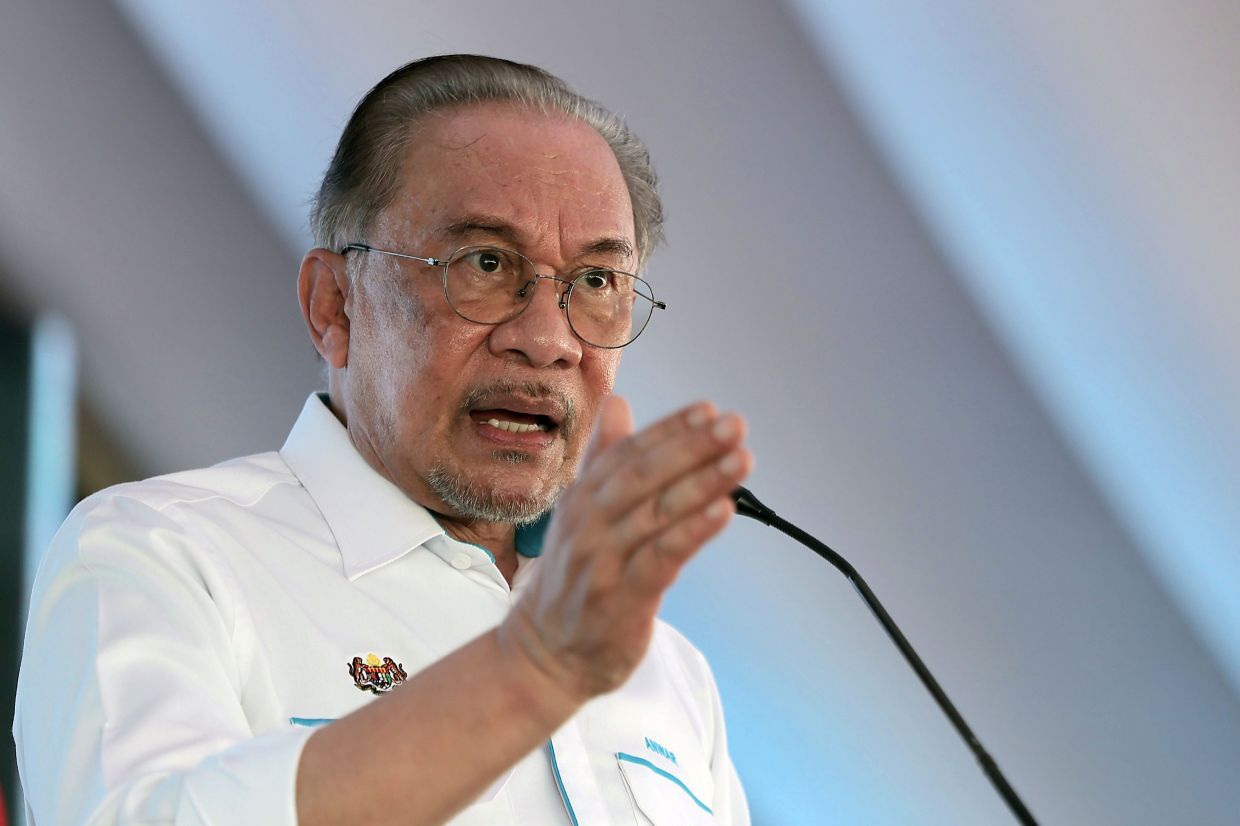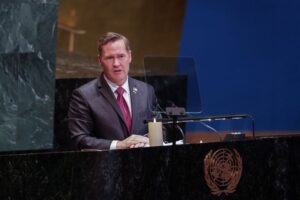KOTA KINABALU: The Federal Government cannot yet commit to one third parliamentary representation for Sabah and Sarawak, says Prime Minister Datuk Seri Anwar Ibrahim.
He said a policy to increase seats for both states has already been agreed in principle.
“So far, there is no commitment to one third representation for Sabah and Sarawak,” he said.
He was responding to calls to grant the two Borneo states one-third representation in Parliament.
“We are committed to increasing parliamentary seats for Sabah and Sarawak as a matter of policy,” he said.
He added that the Election Commission would decide the number of additional seats.
“For Sabah and Sarawak, I have informed the Cabinet we will increase the number of seats,” he said on Sunday (Nov 16) when speaking to reporters during a Santai Media programme.
Anwar said the Sabah and Sarawak Attorneys General and the federal Attorney General were instructed to study the increase.
Sabah and Sarawak have called for one-thirds representation in line with the Malaysia Agreement 1963.
After Singapore left the Federation in 1965, representation fell below one-thirds as its seats shifted mainly to the peninsula.
The increase in seats forms part of ongoing Malaysia Agreement 1963 committee negotiations.
Sabah and Sarawak currently have 25 and 31 parliamentary seats respectively.
On issues raised by Sabah Journalists Association president Mariah Doksil about wages, Datuk Seri Anwar Ibrahim responded.
He said complaints showed senior media practitioners with over 10 years’ service still earn below RM2,000 a month.
He said he would discuss the matter with Communications Minister Datuk Fahmi Fadzil and added they would meet local media companies and practitioners to address the issue.
“I will ask Fahmi to submit a report on media issues in Sabah. We will explore what can be done,” he added.
He said the government could consider targeted incentives to help improve salaries and allowances.
He said if the minimum wage cannot be directly implemented, targeted incentives may support higher pay and urged the local media industry to set its own minimum wage scheme.
Anwar said this would safeguard welfare and strengthen journalism amid competition from social media.
“If someone has worked for 10 years and earns below RM2,000, it is unacceptable,” he said.
He said he was shocked to hear of such salaries among long-serving media staff and added that government-linked companies were asked to set a minimum wage of RM3,100.
Anwar said he hoped the private sector would adopt it too.






